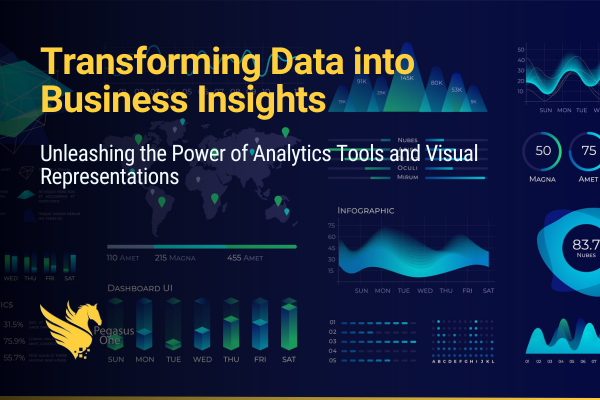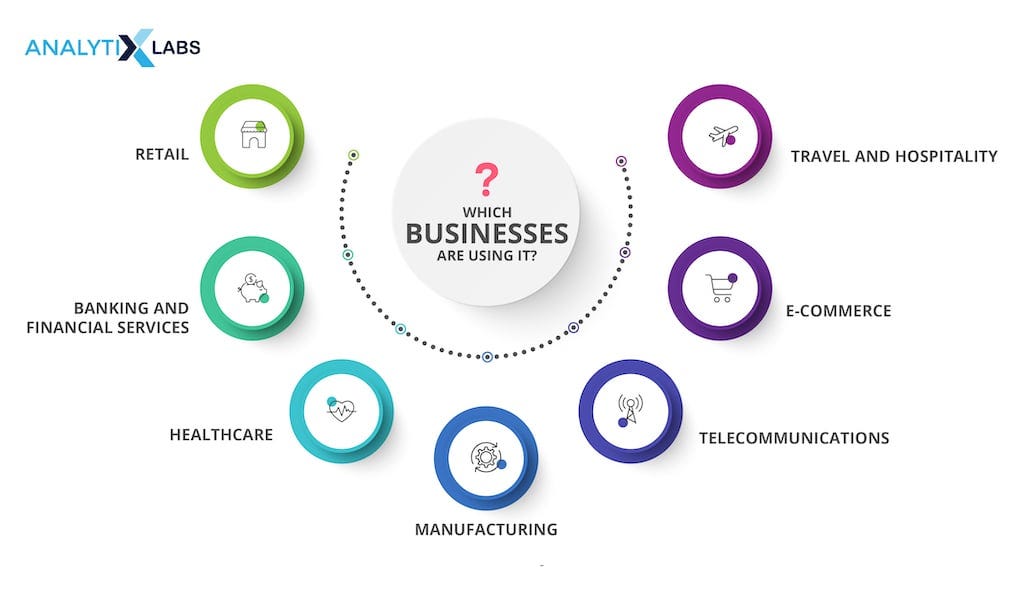Uncover the untapped potential of data and analytics in driving business growth and scaling operations with this comprehensive guide.
Table of Contents
In the fast-paced world of digital marketing, staying ahead of the curve is essential for businesses looking to drive growth and increase profits. One key strategy that can help achieve these goals is leveraging data and analytics. By harnessing the power of data-driven decision-making, businesses can gain valuable insights into their customers, improve their marketing efforts, and ultimately drive success. In this comprehensive guide, we will explore how to effectively utilize data and analytics to achieve business growth and scale.
Leveraging Data and Analytics
Data and analytics play a crucial role in digital marketing, providing valuable insights that can inform strategic decisions and drive business growth. By collecting and analyzing data from various sources, businesses can gain a deeper understanding of their target audience, track the effectiveness of marketing campaigns, and identify areas for improvement. With the right tools and strategies in place, businesses can leverage data to optimize their marketing efforts and achieve their goals.
The Importance of Data-Driven Decision Making
Data-driven decision making is the practice of basing business decisions on data and analysis rather than intuition or guesswork. By using data to inform decisions, businesses can reduce risk, improve efficiency, and drive better results. In the context of digital marketing, data-driven decision making can help businesses identify opportunities for growth, optimize their marketing strategies, and increase ROI.
Tracking, Analyzing, and Interpreting Data
Tracking, analyzing, and interpreting data is essential for making informed decisions and optimizing marketing strategies. Businesses can utilize a variety of tools and techniques to collect data from their website, social media channels, email campaigns, and other sources. By analyzing this data, businesses can identify trends, patterns, and opportunities that can inform their marketing efforts and drive growth.
Social Media Marketing
Social media marketing is a powerful tool for reaching potential customers, driving engagement, and increasing brand awareness. By leveraging social media platforms such as Facebook, Instagram, Twitter, and LinkedIn, businesses can connect with their target audience, share valuable content, and build relationships with customers. Social media marketing can also be used to run targeted advertising campaigns, promote products and services, and drive traffic to your website.
Creating Engaging Content and Building a Strong Presence
Creating engaging content is key to successful social media marketing. By sharing compelling posts, images, and videos that resonate with your target audience, you can drive engagement, increase brand visibility, and attract new followers. Building a strong social media presence involves creating a consistent brand identity, interacting with followers, and staying active on the platform.
Running Ads and Building Relationships
Running targeted advertising campaigns on social media can help businesses reach specific audiences, drive traffic to their website, and generate leads. By leveraging the powerful targeting options available on platforms like Facebook Ads and Instagram Ads, businesses can reach potential customers based on demographics, interests, and behaviors. Building relationships with customers on social media involves responding to comments, messages, and reviews, and engaging with followers in a meaningful way.
Content Marketing
Content marketing is a strategic approach to creating and distributing valuable, relevant, and consistent content to attract and retain a clearly defined audience. By sharing high-quality, informative content that resonates with your target audience, businesses can drive organic traffic to their website, build brand credibility, and establish trust with customers.

Image courtesy of pegasusone-usa.medium.com via Google Images
Creating Valuable and Informative Content
Creating valuable and informative content is essential for successful content marketing. By addressing the needs, questions, and pain points of your target audience, you can position your business as a trusted source of information and expertise. Content can take many forms, including blog posts, videos, podcasts, infographics, and case studies.
Optimizing for Search Engines and Improving Rankings
Search engine optimization (SEO) is a critical component of content marketing, helping businesses improve their visibility in search engine results and drive organic traffic to their website. By optimizing your content for relevant keywords, improving site speed and user experience, and building quality backlinks, you can improve your search rankings and attract more visitors to your site.
Email Marketing
Email marketing is a powerful tool for engaging with customers, nurturing leads, and driving sales. By creating personalized and targeted email campaigns, businesses can build relationships with customers, promote products and services, and drive conversions. Email marketing can also be used to share valuable content, announce promotions, and provide updates to subscribers.
| Chapter | Topic | Description |
|---|---|---|
| 1 | The Importance of Data | Exploring why data is crucial for business growth |
| 2 | Data Collection Strategies | Understanding different methods for gathering data |
| 3 | Data Analysis Techniques | Learning how to make sense of data through analysis |
| 4 | Implementing Data-Driven Decisions | Using insights from data to drive business decisions |
| 5 | Data Visualization | Creating visual representations of data for easier understanding |
| 6 | Scaling with Data | Utilizing data to expand and grow your business |
Building an Effective Email Marketing Strategy
Building an effective email marketing strategy involves segmenting your audience, personalizing your messaging, and delivering timely and relevant content. By sending targeted emails based on customer preferences, behaviors, and purchase history, businesses can increase engagement, improve open rates, and drive conversions. Email marketing automation tools can help streamline the process and ensure that messages are delivered at the right time.
Chatbots, AI, and Machine Learning
Chatbots, artificial intelligence (AI), and machine learning (ML) have revolutionized customer interactions and user experiences. By leveraging these technologies, businesses can automate processes, provide personalized recommendations, and improve customer service. Chatbots can be used to answer customer inquiries, provide support, and guide users through the sales process, while AI and ML can analyze data, predict customer behavior, and optimize marketing campaigns.

Image courtesy of medium.com via Google Images
Streamlining Customer Interactions and Enhancing User Experience
Chatbots can streamline customer interactions by providing instant responses to inquiries, guiding users through the buying process, and offering personalized recommendations. By leveraging AI and ML, businesses can analyze customer data, predict trends, and optimize marketing campaigns to drive better results. These technologies can help businesses improve customer engagement, increase conversions, and drive growth.
Branding and Positioning
Branding is essential for establishing a strong identity, building trust with customers, and standing out in a competitive market. By defining your brand values, messaging, and visual identity, you can create a unique and memorable brand that resonates with your target audience. Positioning your brand effectively involves differentiating yourself from competitors, communicating your value proposition, and building a loyal customer base.
Establishing a Strong Brand Identity
Establishing a strong brand identity involves defining your brand values, mission, and voice, and communicating them consistently across all marketing channels. By creating a cohesive brand experience that aligns with your target audience’s preferences and values, you can build trust, loyalty, and recognition. A strong brand identity can help you stand out in a crowded market, attract customers, and drive growth.
Differentiating Your Brand and Building Trust
Differentiating your brand from competitors involves highlighting your unique selling points, value proposition, and strengths. By communicating what sets your brand apart from others, you can attract customers who resonate with your message and offerings. Building trust with customers involves delivering on your promises, providing excellent customer service, and engaging with your audience in a genuine and authentic way.
Conclusion
Get better growth, leads and profits today.
In conclusion, leveraging data and analytics is essential for driving business growth and scale in today’s competitive market. By utilizing tools and strategies such as social media marketing, content marketing, SEO, email marketing, chatbots, AI, ML, branding, and positioning, businesses can optimize their marketing efforts, reach their target audience, and achieve their goals. NormBondMarkets empowers businesses to succeed in the digital landscape by providing digital marketing and consulting services that leverage data, AI, ML, and emerging technologies. By implementing these strategies and staying ahead of trends, entrepreneurs, professionals, brands, and small to medium-sized enterprises can drive growth, increase sales, and maximize profits in the digital age.
How can data and analytics benefit my business?
Data and analytics can provide valuable insights into customer behavior, optimize marketing strategies, improve decision-making, and drive business growth.
How can I leverage social media marketing for business growth?
Social media marketing can help businesses connect with their target audience, drive engagement, promote products/services, and increase brand visibility.
What role do chatbots, AI, and ML play in business growth?
Chatbots, AI, and ML technologies can streamline customer interactions, provide personalized recommendations, optimize marketing campaigns, and enhance user experience.
Why is branding and positioning important for business success?
Branding and positioning are crucial for establishing a strong identity, building trust with customers, standing out in the market, and attracting a loyal customer base.



